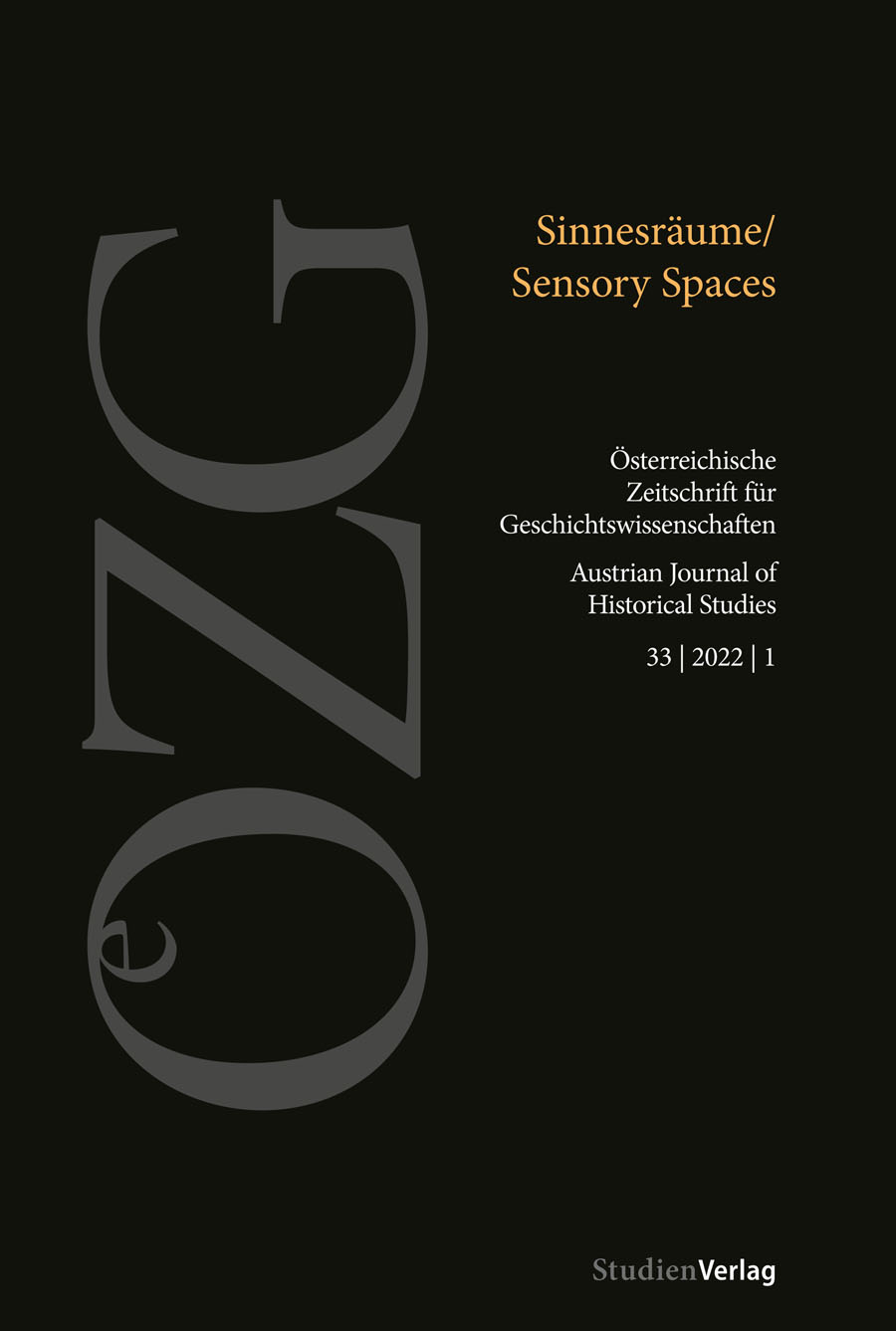Sinnesräume im Ausnahmezustand
Sensorische Wahrnehmung und Raumnutzung im Kontext frühneuzeitlicher Stadtbrände
DOI:
https://doi.org/10.25365/oezg-2022-33-1-2Schlagworte:
early modern city, history of the senses, multisensory, visuality, Germany, Augsburg, town fire, conflagration, space, watchmen, bellsAbstract
Fire was an omnipresent element of premodern daily life, yet also an existential threat for urban communities. Drawing on a wide range of sources from contemporary eyewitness accounts to urban regulations from early modern Germany, this paper analyses town fires as multisensory events. It argues that urban dwellers’ senses were used to monitor the city space for potential outbreaks, alert the population to a fire, and move within a burning city. In connection with this, it discusses in which way urban spaces were constituted differently in an emergency situation. The contribution shows how positioning and movement shaped sensory perception and how perception, in turn, influenced the ways people perceived and used space. Town fires were not simply a time of disorder and sensory overload but situations when sensory and spatial ordering was tested and negotiated within political and social hierarchies.
Downloads
Veröffentlicht
Zitationsvorschlag
Ausgabe
Rubrik
Lizenz
Copyright (c) 2022 Österreichische Zeitschrift für Geschichtswissenschaften

Dieses Werk steht unter der Lizenz Creative Commons Namensnennung 4.0 International.


